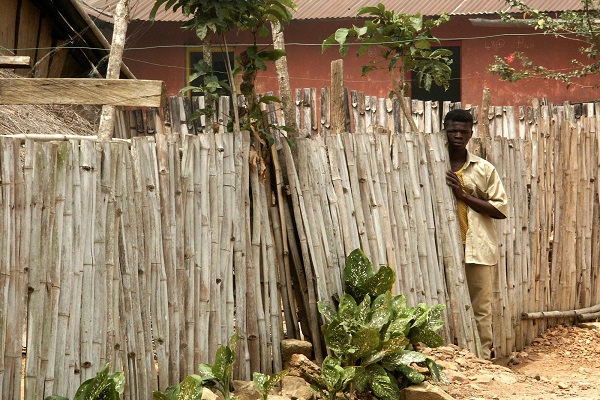Who Is Thy Neighbor?
The biggest struggle for the humble student of history in most African University departments is the understanding of Context. What is context?
For instance, he reads a book written by some European “scholar” claiming that many breakthroughs in medicine, or in medical practice, occurred on the Enslaver Ships of the Europeans, as they ferried away Africans they had kidnapped and shackled.
The student is rarely made aware that this European “scholar” is actually attempting to justify the Trans-Atlantic Chattel Abduction of African peoples by Europeans. “It wasn’t all bad,” is the rationale. “Many good things emerged out of that terrorism of the African continent by Europeans,” is the logic. In fact, “Good things, often, emerge out of bad situations,” is the general paralogical foundation upon which much of this nonsense is built. The rationale.
The context within which such a European “scholar” writes about medicine is that the Terrorism of Africa was necessary, and the European “scholar” writing at that time was simply attempting to use that rationale to justify the European terrorism of Africa. The context is that Wight Supremacism was great, and it is still good. Not all things are bad. Good things, often, emerge from chaos—and so Africans and the rest of the world must reserve assertions about their equal humanity for another day.
The African student of history and his professor, however, are rarely aware that the European “scholar” was simply preempting future charges against the European terrorism in Africa. By rationalizing his terrorism as a “good thing” for the field of medicine, and for that matter for the world, the European “scholar’ is by default justifying that idea that European terrorism was actually “good” for Africans in Africa and in the Americas.
The African student of history and his professor, however, because they are unaware of the context and the rationale fall prey to the paralogism of “good, often, emerges from chaos.” Take for instance how the African student of history and his professor, both Christians, accept the prevailing European Christian doctrine that asserts that before the world became as we know it, the Earth was filled with Chaos—it was without form or shape.
By accepting the paralogism of “Good-Out-of-Chaos” in one instance, one is more likely to accept the similar paralogism in all other contexts. And so the African student of history and his professor, both Christians, accept that before this “beautiful world” was “created by God” or took shape, or perhaps, before it was formed from the “Big Bang,” (European Science) that the Universe was in Chaos. Out of the chaos, they claim, emerged good things. The rationale.
The European “scholar’s” mind and the asserted doctrines of European Christianity are not entirely divorced of each other. They are both intrinsic to the doctrines of the European Miracle, they are central to Wight Supremacism and they are pivotal in the Terrorism of Africa (-ans) by Europeans and they are both instrumental in the justification of that Terrorism. The rationale remains: Before many breakthroughs were made on the Enslaver Ships, the European “scholar” claims that Africa and Africans were stooped in chaos. This is, after all, his point!
But the African student cannot see this. He is unaware of it, until he is trained by someone like myself to see it! It is easy to understand how this paralogism perpetuates itself like a metastasizing cancer in every aspect of the student’s thinking. It is easy to see how the African student of history and his professor continue to fall victim to the terrorism of this rationale and effortlessly partake in referring to Africa as a jungle, as under-developed, as poor, as under-industrialized and in need of European tutelage, help and aid in order to emerge “beautiful” out of the African chaos (jungle).
You see? And so when the African student of history and his professor, both Christians, go to Church, and they are told by their pastor that one should “Love thy neighbor as thyself,” they take this admonishment literally. They suppose that Jesus, the Christ, some two millennia ago (real or imagined) was referring to the British Embassy in Nigeria, or the French Embassy in Togo, or the newly constructed USAFRICOM encampments all across Africa.
The African student of history and his professor are unaware of the context of Jesus’ speech. They are unaware that Neighbors in those days—and in those African villages that Jesus grew up in, much like in our African villages today—Neighbors had skin in the game. They cared for one another because they were directly exposed to the consequences of their own inaction. Neighbors were those who invested in one another’s well-being; people who invested everything back into their own communities. More specifically, the African student of history and his professor are both unaware that “thy Neighbor” cannot be your invaders, your colonizers, your terrorists, your enslavers; Neighbors cannot be your kidnappers and those who continue to loot everything you’ve got under schemes like “Direct Foreign Investment.”
You see? And so the African student of history and his professor go about being acritical of all the wrong things, and being critical of all the right things! The reason? The African student of history and his professor are unaware of who their Neighbor truly is. They have for decades imbibed so much European (academic) paralogism within the walls of our colonial missionary schools that they have become unaware of the Context of their own paralogism. The African student of history and his professor are unaware that when it comes to critical thinking, without the context, knowledge is void.Who is thy Neighbor?











We need true scholarship. Unfortunately, it can only come our own Afrikan scholars, because most of the rest of world scholarship, is racist, fraudulent, and false, when it concerns all Afrikans and their descendants.
All we need to hear from Europeans, Euro-Americans, and Arabs, is when will all Afrikan peoples get their justified reparations, their artifacts, their land, (North Afrika, stolen by Arabs, and Whites historically, and the stolen lands of Southern and Eastern Afrika, that are still economically, and politically in Southern Afrika, controlled by foreigners). Who will have this conversation?
Beautifully written as always.
I read all . Thou art the new Age of Enlightenment
Well articulated, thanks man
damnnnnnnnn Namer Narmer Amenuti
ooooo your God / god sent, herrrrrrr. Enosh Ghansah
Oh! For how long must we see the light True pain and anguish, the African ancestory, has endured much.The front runners have fought a battle of no retreat for the African existence.
Narmer, a good write.
This is pure joy to read, thanks Narmer Amenuti.